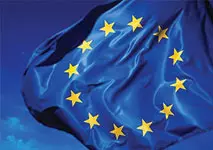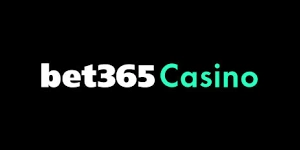European Casinos
Looking for top rated online casinos in Europe? Explore our expert picks of the best Europe-focused casino sites with multilingual support and regional payment methods below.
Europe is home to one of the largest iGaming markets in the world, with combined revenue of €41.7 billion in 2023, a figure projected to grow even further over the next few years. Remote casino gaming is the most popular form of online gambling in EU member states, accounting for approximately 39% of Europe’s overall revenue from the sector. The Old Continent is also home to some of the strictest gambling watchdogs in the world. Prominent examples include the UK Gambling Commission and Spelinspektionen, which regulate iGaming in Great Britain and Sweden, respectively.
Licenses issued by the Malta Gaming Authority (MGA) are generally recognized as valid in other major EU markets with legal online gambling. Given the profusion of licensed iGaming operators in Europe, finding the right online casino can be a daunting task, but we are here to help. In this article, you will find a curation of the top 30 gambling sites catering to European players, alongside a breakdown of the legal landscape by country. We have included regulatory information about ten of the largest markets on the Old Continent.
Overview of the Gambling Industry in Europe
 The European gambling market grows at a rate of about 3% per year and is estimated at nearly €90 billion. Participating in online gambling is a popular form of recreation for Europeans, as is evident from the fact that there are millions of online casino customers in Europe alone, with numerous licensed, secure gambling operators offering their services to players from the Old Continent. In 2012 alone, online gambling operations generated over 12% of the European gambling market’s yearly revenue.
The European gambling market grows at a rate of about 3% per year and is estimated at nearly €90 billion. Participating in online gambling is a popular form of recreation for Europeans, as is evident from the fact that there are millions of online casino customers in Europe alone, with numerous licensed, secure gambling operators offering their services to players from the Old Continent. In 2012 alone, online gambling operations generated over 12% of the European gambling market’s yearly revenue.
There is a vast diversity of legislative and regulatory frameworks within the European online gambling sector. In some European countries, the gambling industry is monopolized, whereas in others, established regulatory and licensing systems are in place that allow foreign gambling providers to legally operate and offer their services to local players.
The online gambling market in Europe is growing at a rapid pace as there are high levels of both supply and demand. Because interactive gambling services extend beyond national borders, the governments of individual European states sometimes struggle to maintain adequate control over the online gambling operations taking place on their territory. Often, players residing in a given jurisdiction end up registering with unauthorized foreign gambling websites in search of more competitive services and offers.
The challenge of an ever-evolving interactive gambling market cannot be met adequately by European countries acting individually. For this reason, the European Commission concentrates on online gambling services and the cross-border nature of this sector. It works to protect players and vulnerable groups, prevent fraudulent activities such as money laundering, and ensure fair play while aligning member states’ individual regulatory frameworks with EU law.
Another important thing to mention is that Europe is home to five of the strictest regulatory authorities in the gambling industry. These include the Malta Gaming Authority, the Gibraltar Gambling Commission, the Isle of Man Gambling Supervision Commission, the UK Gambling Commission, and the Alderney Gambling Control Commission. Some of these authorities operate from jurisdictions that are member states of the Union, while others, like the Alderney Gambling Control Commission, function independently.
The above-listed regulatory authorities are responsible for issuing licenses to various online gambling websites, allowing them to legally provide their services to residents within specific jurisdictions. Each of these regulatory entities operates in line with the highest international standards in the industry and is committed to ensuring the fairness and transparency of its licensees.
The Legal Landscape in European Countries
Since the regulations and legislation pertaining to cross-border online gambling activities vary wildly from one state to another, we have decided to focus separately on some of the key gambling jurisdictions in Europe, providing our readers with brief overviews of the legal landscape regarding online gaming in these countries.
The United Kingdom
Players from the UK benefit from an exceptionally well-regulated gambling market. Currently, both land-based and online gambling are legal within the country, with the licenses of web-based gaming operators being issued by the reputable UK Gambling Commission (UKGC). One of the most important pieces of legislation pertaining to interactive gambling is the Gambling (Licensing and Advertising) Act, enacted in 2014, which introduced the standards with which all gambling providers operating in the UK must comply.
The 2014 Act was a major step toward introducing adequate regulation of the online gambling market – prior to its enactment, offshore operators were practically allowed to serve UK players without a UK license, and no taxes were imposed on their gross revenues. At present, the UKGC issues permits for sports betting, traditional casino games, slot machines, lotteries, and bingo, and operators must acquire separate licenses for each type of gambling activity. Gaming operators with a UK license are expected to pay a flat tax amounting to 15% of their gross profits.
Furthermore, only gaming operators registered in the country are allowed to legally promote their services and accept registrations from UK players. The UKGC has tried on several occasions to restrict UK residents’ access to unlicensed, and therefore unauthorized, gambling websites, but so far its attempts have been unsuccessful. That is to say, players from the country can still open accounts at unauthorized websites, but this occurs only rarely because a large number of reliable gambling operators have already obtained permits from the UKGC.
Germany
Germany is the second most populous country in Europe, second only to the Russian Federation. In addition, the country enjoys the reputation of being the most influential EU member state. Despite boasting one of the most competitive economies on the Old Continent, Germany’s legal stance on interactive gambling remains rather stringent.
After the enactment of the 2008 Interstate Treaty on Gambling (ISTG), online gambling became illegal in all federal states in the country, with the only exception being the state of Schleswig-Holstein, which opted out of the treaty in 2012. More than thirty gambling operators were granted licenses by this state, allowing them to legally offer their services to all German residents. Some of the leading gambling operators in the industry, like 888, PokerStars, and bet365, also obtained their permits, but unfortunately the Schleswig-Holstein government was voted out of office the very next year. The authorized foreign operators were allowed to continue offering their products and services to Germans until their licenses expire in early 2018. Furthermore, only residents of Schleswig-Holstein are currently allowed to gamble legally at the licensed websites.
Because of this, many players from the country resort to opening accounts with offshore, unlicensed gambling operators, which are more than willing to accommodate their needs. German players are usually given the option to process their transactions in their own currency, EUR; load the websites in their native language; and choose from a good range of dependable payment methods, including Giropay.
The Schleswig-Holstein licenses are set to expire in about half a year, and the good news is that German lawmakers are already considering introducing various amendments to the current legislation that will make the local online gambling market more competitive and compliant with EU free-trade laws.
Finland
Both land-based and online gambling are legal in Finland, but the local market is heavily regulated, with licenses for such services granted to only four domestic companies, each enjoying a monopoly over a specific type of gambling.
Land-based forms of gambling are under the control of the state-owned Finnish Slot Machine Association, or RAY. Horse racing and parimutuel betting are overseen by Fintoto Oy, an entity also owned by the Finnish state. PAF, or “Play among Friends,” is responsible for the control of all gambling activities taking place in the province of Åland. Veikkaus Oy (the Finnish National Lottery), on the other hand, regulates instant-win games, sports betting, and lottery tickets. Following intervention by the European Commission, RAY, Veikkaus Oy, and Fintoto Oy merged into a single entity, Veikkaus, as of 2017.
Meanwhile, online gambling is allowed as long as it takes place at websites that have obtained licenses from PAF or RAY. As a result, Finnish players are presented with an extremely limited number of legal gambling options on the web. However, because the country’s government does not prosecute players for betting on unlicensed websites, Finns often resort to using the services of foreign gambling operators. The latter are more than willing to cater to players from this jurisdiction, allowing them to deposit in their local currency, the EUR, and to choose from an extensive range of payment methods such as Nordea, Zimpler, and Euteller. Finns can also load casino websites in their native language, which is supported by a large number of offshore gaming operators.
Sweden
Similarly to their Finnish neighbours, Swedes are allowed to gamble legally both at land-based casinos and online. The state, however, exercises tight control over the domestic gambling market, since only locally licensed gambling providers are permitted to offer their services to players from the country. The state-backed Svenska Spel holds a monopoly over the entire market, as it is the only company to receive licenses for operating a web-based poker platform and online lottery games.
Despite the monopoly, there are no legal repercussions for Swedes who register and play at unlicensed offshore casinos. Because the Swedish government has not taken steps to block foreign casino websites, players from the country can choose from a broad range of gambling operators that accept registrations from this jurisdiction. Furthermore, Swedes are spared conversion fees because most established online casinos support their local currency, SEK.
Various indicators point toward Sweden changing its restrictive policy on online gambling in the future. Lawmakers have already proposed amendments to licensing terms and taxation that would open the monopolized market to foreign competitors. Only time will tell whether the Swedish legislators will follow through with enforcing these amendments.
Denmark
In line with the regulations imposed in neighbouring Nordic countries, Denmark, too, has established a monopoly on most forms of land-based gambling, including bingo, lottery games, and races involving animals such as pigeons, horses, and greyhounds. The online sector of the local gambling market is also subject to strict control, as only operators that have acquired licenses from the Danish Gambling Authority (DGA) are allowed to operate legally within the country’s borders.
At present, the number of locally licensed online casinos exceeds 25. The local authorities have already added some unauthorized operators to their blacklist. In addition, the Danish government can instruct banking institutions in the country to block payments to and from unlicensed operators that accept players from this jurisdiction.
Foreign operators interested in obtaining a Danish license can apply for several different permits, each covering a specific type of gambling activity, such as sports betting, online poker, and virtual casino games.
Spain
Gambling is a popular form of recreation among Spanish residents, which is hardly surprising, considering the country opened its market to foreign competitors after the enforcement of the Spanish Gambling Act in 2012. Under the Act’s provisions, foreign gambling operators can apply for and potentially receive local licenses as long as they comply with the guidelines outlined by the Spanish regulator, the General Directorate for the Regulation of Gambling Activities. One of the conditions is for foreign gambling operators to have their servers located within the country.
Many leading offshore casino providers have already acquired their licenses from the General Directorate, with William Hill, 888, and bet365 being some of the most popular options for Spanish players. Poker enthusiasts from Spain can legally join some of the biggest poker platforms on the Internet, PokerStars and partypoker, via designated domains ending in the .es extension.
Unfortunately, all Spanish licensees are subject to taxes amounting to a staggering 25% of their gross revenue. This is precisely why some foreign gambling providers steer clear of applying for a Spanish license, which hardly prevents them from accepting registrations from the country. As a result, some players look for alternative options among unlicensed gambling operators that welcome customers from Spain.
Italy
Italy is among the European countries that have already introduced adequate regulations regarding online gambling as of 2011. Both brick-and-mortar and web-based gambling operators can serve Italian players as long as they have been granted a valid license from the local regulatory body, the Autonomous Administration of the State Monopolies (AAMS).
The taxes licensees are expected to pay depend on the type of service they provide. Poker operators must pay a flat tax of 3% of their turnover, while online providers of virtual casino games are taxed at 20% of their gross profits. Meanwhile, there is an 11.5% flat tax rate on licensees that offer games of chance and bingo. The government has already issued licenses to a great number of foreign operators, so the options available to Italian gambling enthusiasts are anything but limited.
The Netherlands
Players from the Netherlands can legally partake in all forms of land-based and online gambling as long as the operators serving them hold local licenses. That being said, it is also important to specify that the Netherlands maintains a state monopoly on both brick-and-mortar and online casinos. Web-based operators can legally offer their services to locals provided that their websites are hosted within the country. Yet, at the time of writing this article, no foreign gambling operators have actually received a Dutch license.
The good news is that there is a strong chance of the country opening its online gambling market to foreign operators soon. In 2016, the Lower House approved a new piece of legislation called the Netherlands Online Gambling Bill, following intervention by the European Commission. The latter reprimanded the country for its restrictive policies on online gambling, which were in violation of the EU free-trade guidelines. Some offshore casino operators have reportedly shown interest in applying for a Dutch license. Nevertheless, the new legislation includes heavy taxes of 29% on licensees, which might drive away some potential applicants.
Meanwhile, players from the country are not denied access to the websites of foreign gambling providers and can freely register and bet there.
Greece
Online gambling has been legal in Greece since 2011, when the country enforced its Gambling Act in an attempt to generate additional revenue and rebound from the economic crisis it suffered. This led to leading operators like William Hill and Betfair acquiring temporary licenses, allowing them to legally serve Greek players for a specific period of time.
Unfortunately, the country failed to establish an adequate regulatory system with permanent licensing. Instead, a monopoly was established, with the Greek OPAP controlling the entire online gambling sector. This means only operators licensed by OPAP can legally accept registrations from this jurisdiction. Some operators with interim licenses left the market.
After intervention on behalf of the European Commission, in 2016 the government agreed to introduce various amendments and open the market, but nothing has actually been done yet. Needless to say, players from Greece have no intention of sitting around and waiting for permanent licenses to be granted. Many Greek citizens have already registered at unlicensed foreign casinos, where they can bet on a wide range of virtual casino games, process payments in EUR, and partake in many promotional offers.
Recommended Online Casinos for European Players
To help European players make a well-informed decision when choosing an online casino at which to place their bets, we have taken the time to draw up a short list of four gambling operators that accept members from the Old Continent. All four operators are well known in the industry for their reliability, transparency, and diverse gaming libraries. In addition, players will benefit from a wide range of safe and easy-to-use payment solutions and a plethora of appealing promotional offers.
-
888casino
At 888casino, players face an impressive assortment of games powered by a bunch of reputable software developers, including eminent brands like Pragmatic Play, Big Time Gaming, Play’n GO, and NetEnt. This established casino presents European players with a rich mix of slots, table games, and authentic live dealer tables. Some of the available games were designed in-house and are unique to 888casino.
Website 888casino.com Licenses Gibraltar Regulatory Authority, UK Gambling Commission, MGA, Alcohol and Gaming Commission of Ontario, Ireland's Revenue Commissioners, Sweden, Danish Gambling Authority, Italy, Spain, Portugal Year Established 1997 Support Channels support@888casino.com Available Bonus Welcome Bonus: $25 No Deposit Bonus Compatibility Android, Apple, Windows Deposit Methods Bank Wire Transfer, Payz, MasterCard, Neteller, PayPal, Paysafe Card, instaDebit, Visa, Sofort, Boleto, QIWI, Trustly, Skrill, AstroPay Card, WebMoney, iDebit, MuchBetter, Apple Pay, Rapid Transfer, Bitcoin, Interac, iWallet, Online Bank Transfer, Neosurf, EPS, Pix Withdraw methods Bank Wire Transfer, MasterCard, Neteller, PayPal, Visa, Wire Transfer, Payz, QIWI, Skrill, WebMoney, iDebit, MuchBetter, Rapid Transfer, Trustly, Pix, Interac The live section stands out as it marries the convenience of online play to the lavish atmosphere of landbased casinos. From live blackjack and roulette to exciting live game shows hosted by loquacious presenters, 888casino truly brings the landbased gaming floor to life. Most live tables are powered by Evolution Gaming, so customers can count on nothing short of a spectacular experience.
The gambling operator tops this off with generous bonuses and promotions, designed to extend the gaming journey of both newcomers and loyal patrons. The casino’s accolades and excellent long-standing reputation in the industry underline its commitment to quality and secure gaming. Licensed by authoritative regulatory bodies like the UKGC, MGA, and Spelinspektionen, 888casino poses a secure, fair, and enjoyable online casino haven for all European players.
Pros- Renowned Providers: Hosts games from top software developers like NetEnt, Playtech, and Pragmatic Play.
- Diverse Payment Options: Supports a wide range of deposit and withdrawal methods, including cryptocurrency.
- Mobile Compatibility: Offers games that are fully optimized for mobile devices.
- eCOGRA Certification: Ensures fair play and high payout rates, reported at 96%+ for all games combined.
- Extensive Experience: A trusted name in online gaming since 1997.
Cons- Limited Live Chat: Live chat support is only available for registered members.
- Country Restrictions: Faces multiple country restrictions, limiting access for players in certain regions.
- Bonus Requirements: Table games contribute minimally to meeting bonus wagering requirements.
-
bet365 Casino
Bet365 Casino caters to a global audience by offering a rich diversity of casino games from esteemed software giants like Playtech. European players will find themselves well-catered to with a suite of games that spans hundreds of thrilling slots, immersive live casino tables, and video poker variants. The cherry on top is the attractive bonuses new customers can kickstart their gaming adventure with.
Website casino.bet365.com Licenses Estonian Tax and Customs Board, UK Gambling Commission, Malta Gaming Authority, Swedish Gaming Authority, The Netherlands Gambling Authority - Kansspelautorit, Gibraltar Gambling Commission, Alcohol and Gaming Commission of Ontario, Danish Gambling Authority Year Established 2001 Support Channels support-eng@customerservices365.com Available Bonus 100% Welcome Bonus up to $200 Compatibility Android, Apple, Windows Deposit Methods Apple Pay, Visa, Mastercard, Interac, InstaDebit, Paysafecard, Wire Transfer, Click To Pay, Payz, Sofort, Trustly, iDeal, PayPal, AstroPay, Swish, Giropay Withdraw methods Wire transfer, Interac, InstaDebit, Visa, Mastercard, Payz, Trustly, AstroPay, PayPal The heart of the action lies in the live casino, where professional dealers greet players at the live blackjack, roulette, and baccarat tables. The live lobby is a blend of tradition and modernity as high-definition streams bring the ambiance of the real casino floor straight to your living room. Table limits are versatile enough to accommodate both casino novices and seasoned high rollers.
Safety and player support are pillars at bet365, which ensures a secure gaming environment through the latest SSL encryption technologies. The casino’s commitment to responsible gaming is evident in its comprehensive range of tools that help players stay in control. The brand is also licensed by the UK Gambling Commission and the Malta Gaming Authority, and provides reliable customer care around the clock.
Pros- Fast Withdrawal Processing: Processes withdrawals within 24 hours.
- Mobile Optimization: The casino is fully optimized for mobile devices.
- Customer Support: Features 24/7 live chat support.
- Unlimited Withdrawals: No set limits on withdrawal amounts.
- Game Variety: Offers a good selection of games, including live dealer options.
- Extensive Live Dealer Games: A wide range of live dealer games is available.
Cons- Primary Focus on Sports Betting: The company's primary focus is on sports betting, which may detract from the casino experience for some players.
- Verification Process: The verification process can be lengthy, potentially delaying the start of the gameplay for new users.
-
PlayOJO Casino
PlayOJO Casino provides a wide array of over 3,000 games, curated from a diverse mix of both established and newer software developers to ensure a rich and varied gaming experience for all European players. Renowned for its transparency and fair-play philosophy, PlayOJO imposes no wagering requirements on bonuses, which makes it a standout choice for players looking to get more bang for their buck.
Website playojo.com Licenses Malta Gaming Authority, UK Gambling Commission, Danish Gambling Authority, Swedish Gambling Authority, Alcohol and Gaming Commission of Ontario Year Established 2017 Support Channels Support@playojo.com Available Bonus Welcome Bonus: 50 Free Spins on First Deposit (no wagering required) Compatibility Android, Apple, Windows Deposit Methods Bank Wire Transfer, Payz, Maestro, Mastercard, Neteller, PayPal, Paysafecard, Visa, Sofort, Fast Bank Transfer, Trustly, Skrill, Instant Bank Transfer, Apple Pay Withdraw methods Bank Wire Transfer, Maestro, Mastercard, Neteller, PayPal, Paysafecard, Visa, Sofort, Wire Transfer, Payz, Fast Bank Transfer, Skrill, Trustly, Instant Bank Transfer, Apple Pay PlayOJO unveils an expansive selection of premium live dealer games, including over two dozen roulette variations, numerous blackjack tables, and other classics like baccarat and casino hold’em, alongside engaging live show games. This immersive section caters to a broad audience, with tables in multiple languages to accommodate customers from most European countries.
Beyond live dealer games, PlayOJO shines with an impressive slot collection that poses a combination of modern video slots, timeless three-reel classics, and progressive jackpot releases. The absence of scratchcards is scarcely felt in the presence of PlayOJO’s broad spectrum of table games and video poker. PlayOJO’s commitment to regularly updating its game library ensures players always have the hottest releases readily available at their fingertips.
Pros- No Wagering Requirements: Offers bonuses without playthrough conditions, a rare find in the online casino world.
- Quick Withdrawal Timeframe: Processes withdrawals within 0-24 hours.
- Round-the-Clock Live Chat: Customer support is available 24/7.
- Wide Game Selection: Hosts an extensive range of games from top software providers.
- Player Rewards: Returns money on every bet, win or lose.
- Mobile Optimization: Features a mobile-friendly design for gaming on the go.
- Regulatory Approvals: Holds licenses from multiple esteemed authorities, ensuring compliance and security.
Cons- Support Access: Requires registration for support services.
- Live Chat Response: May experience slow response times.
-
Betway Casino
Betway customers are treated to a vast library of gaming options crafted by leading software providers like NetEnt, Pragmatic Play, IGT, and Microgaming, among others. This ensures European players have access to a diverse range of high-quality casino games, from slots to table mainstays, all playable without the need for any software downloads.
Website betway.com Licenses Malta Gaming Authority, UK Gambling Commission, Western Cape Gambling and Racing Board, Gaming Commission of Ghana, DGOJ Year Established 2005 Support Channels support@betway.com Available Bonus Welcome Bonus: Up to $1,000 Deposit Bonus Compatibility Android, Apple, Windows Deposit Methods Bank Wire Transfer, ClickandBuy, Payz, Maestro, Mastercard, Neteller, PayPal, Paysafecard, Ukash, Visa, Entropay, Sofort, POLi, Giropay, EPS, Boleto, Euteller, Neosurf, QIWI, Trustly, Skrill, AstroPay Card, WebMoney, Rapid Transfer, Klarna Instant Bank Transfer, MuchBetter Withdraw methods Bank Wire Transfer, Neteller, PayPal, instaDebit, Visa, Entropay, Payz, EZIPay, QIWI, Skrill, MuchBetter The live dealer section stands out as it offers an array of baccarat, roulette, and blackjack games operated 24/7. This immersive experience mirrors the unique ambiance of landbased casinos and enables players to engage with live dealers and fellow gamers in real-time, fostering a sense of community and authenticity.
Betway Casino ensures a secure and supportive environment with round-the-clock customer service. Utilizing advanced SSL encryption, the casino safeguards all player information, underscoring its commitment to security. By undergoing regular fairness assessments by eCOGRA, Betway positions itself as a trusted and enjoyable platform for European gamblers across the board.
Pros- Diverse Banking Options: Offers a wide range of deposit and withdrawal methods, catering to a global audience.
- Extensive Game Library: Features over 450 games from Microgaming, including slots, table games, and video poker options.
- Reputable Casino: Over 20 years of experience in the online gaming industry, with high levels of player trust.
- Security: Utilizes SSL encryption to protect player data and is routinely audited by eCOGRA for fairness.
- Mobile Support: Provides a dedicated mobile casino app for Android and iOS devices, in addition to instant play and mobile versions.
Cons- Country Restrictions: Not available to players in multiple countries, limiting its accessibility.
- Slots-Focused Bonus: The welcome bonus primarily benefits slots players, which might not appeal to all.
- High Playthrough Requirements: Bonuses come with fairly high wagering requirements, making it challenging to clear.








